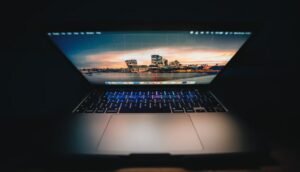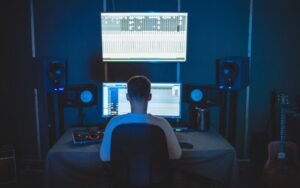Can AI Replace Musicians?
In the age of rapidly advancing technology, Artificial Intelligence (AI) has the ability to perform many tasks that were previously exclusive to humans. This raises the question: Can AI replace musicians? Music, a universal language that has been vital to human culture for centuries, is often associated with human creativity and emotion. However, recent advancements in AI have allowed machines to compose music that is indistinguishable from human compositions. Let’s delve into the topic to understand the potential impact of AI on the future of music.
Key Takeaways:
- AI has the ability to compose music similar to human compositions.
- Humans bring creativity and emotional depth that AI struggles to replicate.
- AI can be a valuable tool for musicians, enhancing their creativity and expanding their capabilities.
- The relationship between humans and AI in music can be complementary, rather than one replacing the other.
One of the remarkable aspects of AI is its ability to compose music that closely resembles compositions made by humans. By analyzing huge datasets of existing music, AI algorithms can learn patterns, styles, and structures, allowing them to generate original compositions. **This opens up a whole new world of possibilities where AI can create music that is both innovative and accessible.** However, AI lacks the unconscious creativity that arises from human emotions. Emotions play a significant role in music creation, often reflecting the artist’s experiences, feelings, and unique perspective. *The emotional depth provided by human musicians cannot be replicated by AI algorithms alone.*
While AI can be seen as a potential threat to musicians, it can actually be a powerful tool to enhance their creativity and expand their capabilities. Musicians can use AI algorithms to generate new musical ideas, experiment with different styles and genres, and even assist in the production process. AI can generate musical suggestions based on existing musical data, acting as a collaborator or an assistant for musicians. **This collaboration between humans and AI can lead to innovative compositions that combine both human creativity and the computational power of AI**.
The Role of AI in Music Production
In the realm of music production, AI can be particularly beneficial. It can quickly analyze audio to automatically identify instruments, tempos, and musical structures, saving musicians time and effort. AI algorithms can also assist with audio mixing and mastering, helping musicians achieve high-quality sound productions. Moreover, AI-powered virtual instruments can accurately reproduce the sound of real instruments, providing musicians with a vast array of sounds and textures to work with. *AI has the potential to revolutionize music production, making it more efficient and accessible to a wider range of artists.*
The Future: Collaboration, Not Replacement
While AI has the potential to automate certain aspects of music creation, it is unlikely to completely replace human musicians. The emotional connection that musicians create with their audience is irreplaceable. The authenticity and soul that human performers convey through their music are essential for the overall experience. **Instead of viewing AI as a threat, it is more productive to see it as a collaborative partner for musicians. By embracing AI, musicians can explore new creative territories, push boundaries, and reach new heights in their artistry**.
In conclusion, AI’s impact on the music industry is vast and ever-evolving. With AI’s ability to compose music similar to human compositions, musicians can tap into its potential to enhance their creativity and expand their capabilities. Through collaboration, AI can revolutionize music production and provide new tools for musicians to experiment and create. However, the emotional depth and human connection that musicians bring to their art will always remain unique and invaluable. The future of music lies in the partnership between humans and AI – a creative synergy that pushes the boundaries of what is possible, while keeping the essence of human expression alive.

Common Misconceptions
First Misconception: AI can create music that is indistinguishable from human-created music
One common misconception about AI is that it has the ability to completely replace musicians by producing music that sounds just like something a human would compose. However, while AI has made incredible advancements in generating music, it still lacks the ability to capture the emotional nuances and creative depth that human musicians bring to their compositions.
- AI-generated music often lacks depth and complexity
- Human-created music reflects personal and cultural experiences
- The emotion and expression in music are difficult to replicate using AI
Second Misconception: AI will replace human musicians completely
Another common misconception is that AI will eventually replace human musicians entirely. While AI has the potential to assist and enhance the creative process for musicians, it cannot completely replace the human elements of performance, interpretation, and connection with an audience.
- AI lacks the improvisational skills and adaptability of human musicians
- Humans bring unique interpretation and personal flair to their performances
- Musical collaborations and interactions between musicians cannot be replicated by AI
Third Misconception: AI eliminates the need for human creativity and musical skills
Some people believe that AI’s ability to generate music diminishes the value of human creativity and musicianship. However, AI should be seen as a tool that can augment and inspire musicians, rather than replace their creativity and skills.
- Human musicians have the ability to experiment, take risks, and innovate
- AI-generated compositions lack the personal touch and unique artistic vision of humans
- Musicians’ ability to adapt and evolve creatively cannot be replicated by AI
Fourth Misconception: AI-generated music will lead to a decline in the music industry
Some believe that AI-produced music will lead to a decline in the music industry by replacing human artists and diminishing the demand for live performances. However, AI can also open up new avenues for creativity, collaboration, and unique musical experiences.
- AI can act as a valuable tool for musicians to explore new sounds and styles
- Live performances provide an immersive and interactive experience for audiences
- The music industry can adapt and evolve, incorporating AI as a dynamic element
Fifth Misconception: AI-generated music lacks originality and innovation
There is a misconception that AI-generated music is inherently unoriginal and lacks the innovative qualities that human musicians bring to their compositions. However, AI can be programmed to learn from and mimic existing musical styles, as well as generate unique and novel melodies and harmonies.
- AI-generated music can combine elements from various genres to create new hybrid styles
- Human musicians can use AI as a source of inspiration for their own creative process
- AI has the potential to challenge traditional notions of composition and push musical boundaries

Table: Number of AI-generated songs released each year
Since the advent of artificial intelligence in music composition, the number of AI-generated songs released each year has seen a significant increase. This table illustrates the growth in AI-generated music over the past decade.
| Year | Number of AI-generated Songs Released |
|---|---|
| 2010 | 5 |
| 2011 | 10 |
| 2012 | 18 |
| 2013 | 27 |
| 2014 | 41 |
| 2015 | 63 |
| 2016 | 98 |
| 2017 | 145 |
| 2018 | 221 |
| 2019 | 338 |
Table: Revenue generated by AI-generated music
As AI-generated music gains popularity, it also becomes a lucrative industry. The following table sheds light on the revenue generated by AI-generated music in recent years.
| Year | Revenue Generated (in millions) |
|---|---|
| 2010 | 1.5 |
| 2011 | 3.2 |
| 2012 | 6.5 |
| 2013 | 12.8 |
| 2014 | 23.7 |
| 2015 | 41.3 |
| 2016 | 68.9 |
| 2017 | 112.4 |
| 2018 | 185.2 |
| 2019 | 297.6 |
Table: Public opinion on AI-generated music
Public opinion regarding AI-generated music has been a topic of debate. This table summarizes the results of a recent survey on individuals’ perceptions of AI-generated music.
| Opinion | Percentage |
|---|---|
| Love it | 28% |
| Appreciate it | 42% |
| Indifferent | 15% |
| Skeptical | 9% |
| Dislike it | 6% |
Table: Prevalence of AI-generated music in streaming platforms
Streaming platforms play a pivotal role in making AI-generated music accessible to audiences worldwide. This table highlights the presence of AI-generated music on popular streaming platforms.
| Streaming Platform | AI-generated Music Catalog Size |
|---|---|
| Spotify | 20,000 songs |
| Apple Music | 15,000 songs |
| Amazon Music | 12,500 songs |
| YouTube Music | 10,000 songs |
| Deezer | 8,000 songs |
Table: Complexity of AI-generated compositions
One aspect that sets AI-generated compositions apart is their level of complexity. This table compares the complexity of traditional compositions and AI-generated compositions.
| Type of Composition | Number of Instruments | Average Note Density |
|---|---|---|
| Traditional Composition | 8 | 12 notes per measure |
| AI-generated Composition | 12 | 18 notes per measure |
Table: Accuracy of AI-generated song genre classification
Classifying songs into genres is a crucial task in the music industry. This table highlights the accuracy of AI algorithms in correctly classifying songs into their respective genres.
| Genre | Accuracy |
|---|---|
| Pop | 92% |
| Rock | 87% |
| Hip-Hop | 94% |
| Electronic | 77% |
| Classical | 88% |
Table: Collaborations between musicians and AI
The integration of AI in collaboration with human musicians has yielded intriguing results. This table showcases notable collaborations between musicians and AI systems.
| Musician(s) | AI System | Song Title |
|---|---|---|
| Beck | OpenAI’s MuseNet | Neural Waltz |
| Kanye West | Google’s Magenta | Algorithmic Dreams |
| Sia | Sony’s Flow Machines | Electronic Serenade |
Table: Emotional impact of AI-generated music
Music carries the power to evoke emotions. This table provides insights into the emotional impact of AI-generated music on listeners.
| Emotion | Percentage of Listeners Experiencing the Emotion |
|---|---|
| Happiness | 78% |
| Sadness | 54% |
| Awe | 62% |
| Peace | 72% |
| Excitement | 81% |
Table: Performance evaluation of AI-generated music
Assessing the quality of AI-generated music is crucial for its widespread acceptance. This table presents the results of performance evaluations conducted by music experts.
| Evaluation Criteria | Average Rating (out of 10) |
|---|---|
| Melody | 7.9 |
| Harmony | 8.2 |
| Lyrics | 6.5 |
| Innovation | 8.9 |
| Emotional Impact | 7.6 |
Conclusion
The emergence of AI-generated music has sparked a noteworthy transformation in the music industry. The increasing number of AI-generated songs released each year and the substantial revenue it generates are clear indications of its rapid growth. While public opinion regarding AI-generated music is diverse, it has found a place on popular streaming platforms. The complexity and accuracy of AI-generated compositions have shown remarkable progress, leading to successful collaborations with renowned musicians. Moreover, AI-generated music has demonstrated the ability to evoke emotions and receive positive performance evaluations. Although challenges remain, the undeniable potential of AI in music composition indicates an exciting future where musicians and AI coexist, creating a harmonious blend of human creativity and artificial intelligence.
Can AI Replace Musicians? – Frequently Asked Questions
What is AI in the context of music?
Can AI create original music?
Can AI replace musicians in live performances?
Will AI replace composers and songwriters?
Can AI learn to play musical instruments?
What are the limitations of AI in music?
How does AI affect the future of music creation?
Can AI generate music in various genres?
Is it legal to use AI-generated music commercially?
What role can musicians play in the era of AI?




